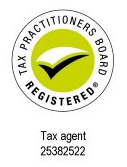Property Investors
Tips for Property Investors
As a property investor you must be aware that the ATO uses significant data matching and information-gathering technologies. This data is gathered directly from third party sources including other government agencies, rental authorities, property managers, rental advertising platforms and information supplied by investors in previous tax returns.
So, it is more important than ever to report all investment income, including from overseas and maintain accurate records. You can then correctly calculate capital gains or losses on disposal and comply with the various rules and concessions available to investors so you can achieve the best results.
It is also very important before purchasing an investment property to consider the structure you will use as this will affect the claims and concessions you can access.
Consideration of who will own the property is very important as it will affect how income is taxed and how any capital gain or loss is distributed. If a property is to be owned jointly, thought should be given to how any additional income or expenses will affect each owner’s taxable income. This is also dependent upon whether the property is negatively or positively geared.
The period the property is held is also an important consideration. A fifty percent capital gains tax discount is available on any gain after the property is held for a minimum of 12 months provided it is held by individuals, a complying superannuation fund or a trust.
The way in which a property is financed has several implications including tax, wealth creation and exit strategy.
Negative gearing is a term commonly applied to interest and depreciation expenses, but it actually includes all rental deductions. A property is negatively geared when all its running expenses exceed the income it produces, and a loss is incurred. These losses can then be offset against other assessable income such as wages or business income thereby enabling a reduction in tax payable.
Negative gearing is most beneficial to people in high income tax brackets who can apply the losses to reduce their income tax. However, it should only be used as part of a wealth accumulation plan that has taken into consideration personal circumstances and the effects of any likely changes.
Positive gearing, on the other hand, occurs when the income received is greater than the expenses and therefore makes a net contribution to taxable income. This can be useful when growing an investment portfolio as additional income can be used to obtain further finance on another property.
The important thing with either type of gearing is that you are clear on your overall strategy, the tax implications, and your budget.
Good record keeping is essential from the outset and must be maintained afterwards as the ATO requires investment property records to be held indefinitely.
Initial purchase documents that should be kept include the purchase contract, transfer duty paid, legal and loan establishment fees and any other costs associated with the initial purchase. These costs are not claimable as running expenses but form the base cost on which any capital gain in the future will be calculated.
Thereafter, all records of income and expenses should be collected and maintained. It is a good idea to keep a digital copy of everything rather than be reliant upon paper copies which may deteriorate over time.
Deductions prior to the property becoming income producing
In order to claim most deductions, the property must be available for rent. The only deductions that can be claimed prior to the property becoming income producing are interest and depreciation.
Deductions available when the property is income producing
Owners of rental properties that are being rented out or are ready and available for rent can claim deductions for a range of expenses. These may include interest on loans, land tax, council and water rates, body corporate charges, repairs and maintenance and agents’ commissions.
Depreciation for the declining value of assets such as stoves, carpets and hot-water systems may also be claimable. Deductions for capital works may be spread over several years, such as for a new build or structural improvements like re-modelling a bathroom.
Investors should be aware that depreciation deductions for residential real estate properties are now limited to expenses incurred on new items. For properties acquired from 9 May 2017, landlords can no longer depreciate assets that were in the property at the time of purchase; however, should they purchase a new (not used or refurbished) asset, they can depreciate that asset.
It is a good idea to obtain a depreciation schedule prepared by a licensed Quantity Surveyor who can provide an independent analysis of the capital allowances available under division 40 and 43 of the ITAA 1997.
Residential landlords are no longer allowed travel deductions relating to inspecting, maintaining or collecting rent for a rental property.
COVID-19 has raised several tax issues for rental property owners or agents to consider, including:
- deductions for properties where tenants are not paying their full rent or have temporarily stopped paying rent as their income has been affected due to COVID-19
- reductions in rent for tenants whose income has been adversely affected by COVID-19, to enable them to stay in the property
- assessable receipts of back payments of rent or an amount of insurance for lost rent
- interest deductions on deferred loan repayments for a period due to COVID-19
- cancellation of bookings due to COVID-19 for a property that is usually rented out for short-term accommodation, but has also previously had some private use by the owner
- the private use of a rental property by the owner (e.g. holiday home) to isolate during COVID-19 and adjusting available deductions
- changes to advertising and other fees for short-term rental properties during COVID-19 due to no demand for the property.
While you’re still able to claim deductions for your expenses and depreciation, you may need to make adjustments if you’ve changed how you use the property.
If you anticipate having a large amount of deductions which will reduce your taxable income substantially and wish to improve cash flow throughout the year rather than waiting until the end of financial year you may wish to apply for a PAYG Withholding Variation.
The application can be made any time during the year but in order to apply to the current financial year it must be lodged prior to 30th April. The application is valid for one year only.
Capital Gains Tax is applied to any capital gain arising from the sale of any asset acquired after the 19th of August, 1985. You are liable for Capital Gains Tax if your capital gain exceeds your capital loss in any financial year. Any capital gain must be reflected in your tax return for that year. When disposing of an asset this is an important consideration when a transaction straddles the end of financial year as the applicable date is the contract date rather than settlement date. It may be possible to reduce capital gains tax by applying capital losses if incurred in the same or a prior year.
You do not pay capital gains tax on your principal place of residence. However, any investment properties are subject to Capital Gains Tax when sold. Therefore, if you move out of your principal place of residence and begin to use it as an investment property, capital gains tax will apply to any capital gain made during this period. In order to determine the correct cost base, a valuation should be obtained at the time the purpose of the property changes. Any capital gain made is added to your other income to calculate your taxable income and then taxed at your marginal rate.
If you are a foreign resident for tax purposes at the time you dispose of your residential property in Australia, you will generally not qualify for the CGT main residence exemption. Certain circumstances may affect this outcome and should be investigated.
If you are an Australian resident with overseas assets you need to include any capital gains or losses you make on those assets in your tax return. You may also have to include income you receive from overseas interests in your tax return.
You can receive income even if it is held overseas for you. If you receive foreign income or gains that are taxable in Australia, and you paid foreign tax on that income, you may be entitled to an Australian foreign income tax offset.
Be aware that the ATO has information exchange agreements with revenue authorities in many foreign jurisdictions and therefore is likely to receive data on any of your overseas investments and income.





